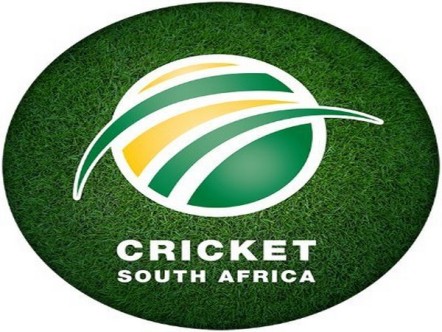A Outcry Against Racism In Cricket Fraternity:
Compensating victims of racism does not financially harm the reputation of the Cricket South Africa (CSA) Social Justice and National Building (SJN) programme, independent board member Eugenia Kula-Ameyaw said on Friday. The plague of racism has tarnished the game as much as any other part of the country ‘s culture, and paying former players and other afflicted players has floated as a way to accept the wrongs and try, in a small way, to remedy them. But it may also clarify why the accusation of prejudice has escalated in recent weeks: some could see benefit in pain.
“We ‘re still collecting funds to see how we’re going to rebuild,” said Kula-Ameyaw, CSA ‘s transformation leader, during an online press conference. “There are a lot of businesses, even government, who are ready to restore people. Yes, money is going to change hands at some point.”
And she didn’t have any issues with it: “I don’t understand what’s going to be damaged when you try to fix it. When people work in the asbestos factory and are infected by [tuberculosis], they get paid. There’s nothing wrong with that. We ‘re also going to focus on the mechanisms of payments. There is nothing wrong with compensating people who have lost their jobs, but each case will be judged on its own merits. That’s not going to hurt reputation. Ask those who work in mines, asbestos factories, and some insurance companies; organisations pay for rehabilitation or some sort of redress.
How CSA is going to decide who is being paid and how much commitment is going to be challenging. Makhaya Ntini said his teammates gave him a cold shoulder, so he decided to stop taking the team bus. Thinking that this needs to be proved and is more serious-and thus worth more-than Aaron Phangiso being the only player in the 2015 South African World Cup squad not to play a single game in the tournament? Or is Khaya Zondo removed from the XI to play an ODI against India in Mumbai in October 2015? What about Geoff Toyana not being appointed South Africa Coach in August 2017, which CSA President Chris Nenzani has since described as “a lost opportunity?” What happens if white players who feel themselves unfairly disadvantaged by South Africa ‘s new racial selection policy seek payment? Or if the victims of past racial selection policies-the first 247 test players were all listed as white since the limit was 11 whites per team-are still involved in what comes to them? Would the lost earnings be used as a metric, or will the amount of hurt suffered come into the equation?
Kula-Ameyaw resisted this degree of detail. Instead, she said things like, “What I don’t like about cricket is that they don’t know how long they ‘re going to play.” And, “Football is 45, 45 [minutes]; then you’re done.” And, “I only watch cricket highlights, not the whole game. I don’t have time for that. “And:” Am I done with that? May I go to bed? “It’s only fair to make it clear that she was kidding, and to say cricket boards have independent directors because they don’t have ties to the game and therefore don’t carry any vested interests in cricket with them. But it’s also true that Kula-Ameyaw would only give the board a legion of critics ammunition by taking the flippancy to a serious topic.
The accompanying release quoted CSA acting president Beresford Williams as saying: “Today, I can boldly state that despite the difficulties that CSA has faced, we are committed to a new direction rooted in the mandate set out by the [SJN]. It is up to the former players , coaches and administrators and the general public to act collectively. We need to ensure that the ills that could have been inflicted on them are not spread to the next generation.
“As the CSA Board, we have taken the country to our confidence and acknowledged responsibility for failing to have appropriate mechanisms for disclosing incidents of prejudice and discrimination at the time they occurred. We recognise this failure and apologise to the cricket stakeholders for ensuring that we will urgently aim to address what has happened in the past.”
Nine SJN ambassadors were named: Toyana, former men’s internationals Ntini, Monde Zondeki, Gary Kirsten and Lance Klusener, and female players Marcia Letsoalo, Shandre Fritz, Nolubabalo Ndzundzu and Dinesha Devnarain. They would seem to have been well-qualified for their position, as did Dumisa Ntsebeza, who was appointed SJN ombudsman but, unfortunately, did not attend a press conference. Ntsebeza is a lawyer who completed his law degree while in gaol for political actions during the fight against apartheid in South Africa. He lectured in law and acted as an acting judge. He is the chair of the Desmond Tutu Peace Trust and the trustee of the Nelson Mandela Foundation as well as the chancellor of the University of Fort Hare. Good people are difficult to find in cricket, but cricket seems to have found one.
In the past, faced with the choice between right and wrong, CSA made so many bad choices. Having engineered this chance to get it right and taken positive measures to do so, is it too late to hope that they won’t get it wrong? This will take integrity in every sense. Putting money where the mouths of former players are won’t be enough.



